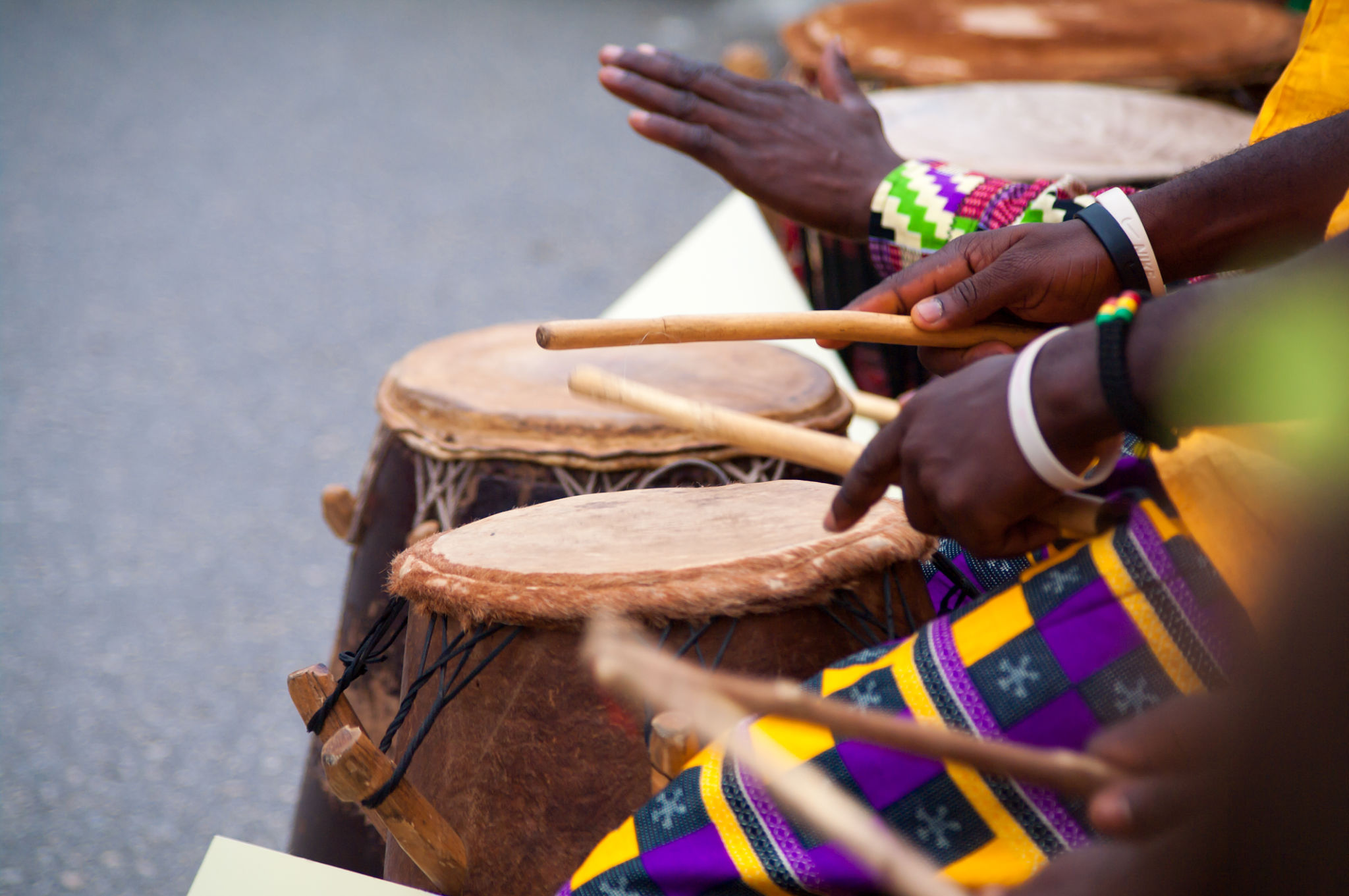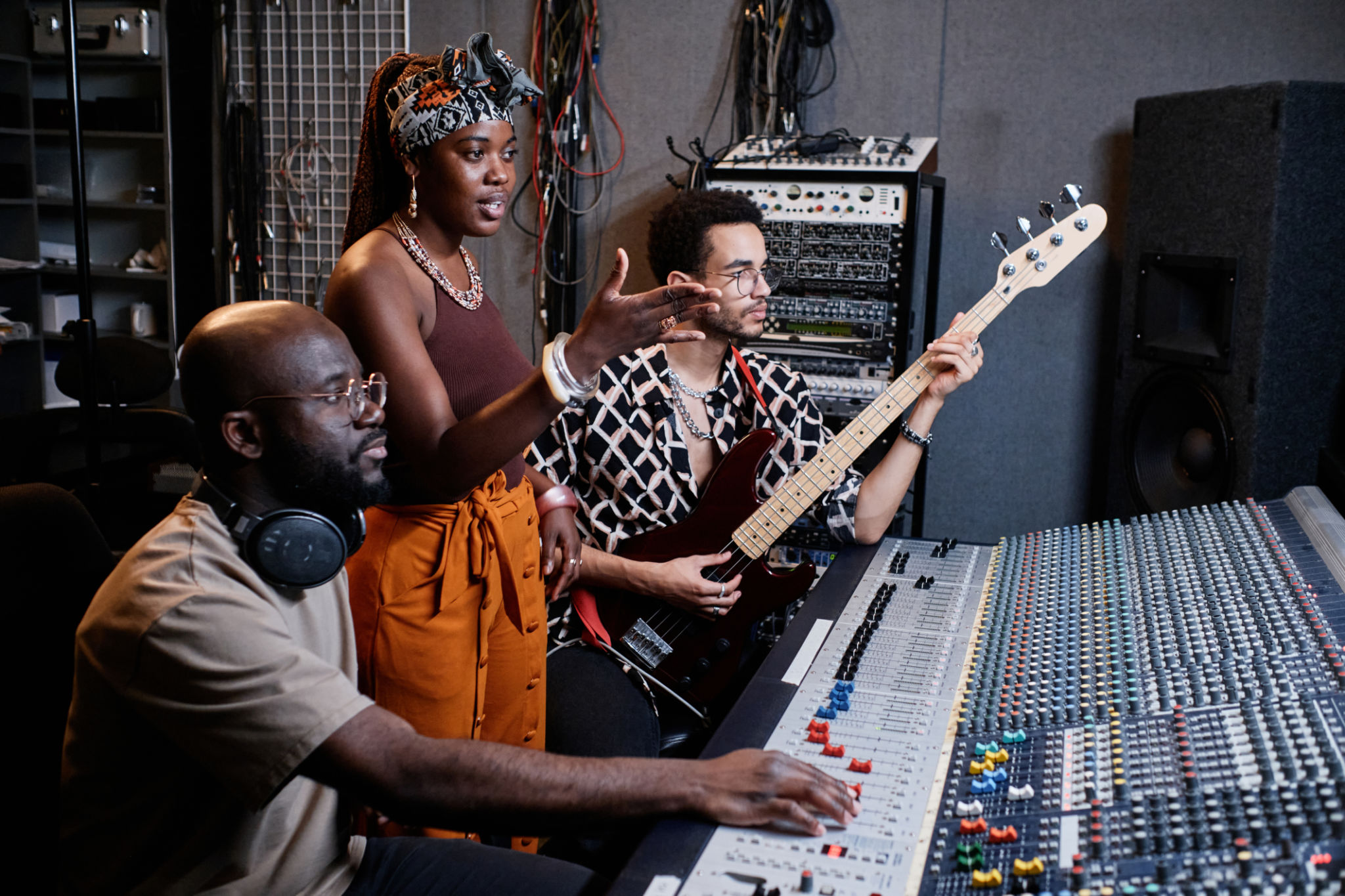How to Get Started with Producing African Electronic Music at Home
Understanding African Electronic Music
African electronic music is a vibrant fusion of traditional African rhythms and modern electronic beats. This genre is gaining popularity worldwide due to its unique soundscapes and cultural richness. If you're looking to start producing African electronic music at home, it's essential to first understand the core elements that make this music distinctive.
The rhythms in African electronic music often stem from traditional African drumming, which features complex polyrhythms and syncopated beats. Integrating these elements into your production can give your music an authentic feel and connection to its roots.

Setting Up Your Home Studio
Creating the right environment is crucial for music production. You don't need a high-end studio to start making African electronic music. Here's a simple guide to setting up your home studio:
- Computer: A reliable computer is essential for running digital audio workstations (DAWs) and other software.
- Audio Interface: This device connects your instruments and microphones to your computer, ensuring high-quality sound recording.
- DAW Software: Choose a DAW that suits your style and budget. Popular choices include Ableton Live, FL Studio, and Logic Pro.
- Headphones and Monitors: Invest in good-quality headphones and studio monitors for accurate sound reproduction.
Essential Instruments and Tools
While modern electronic music production heavily relies on software, having a few traditional instruments can add depth to your sound. Consider incorporating:
- Percussion Instruments: Djembe, congas, or bongos can be used to create authentic African rhythms.
- MIDI Controller: A MIDI keyboard or pad controller allows you to input melodies and beats into your DAW.

Exploring African Music Samples
A great way to add authentic sounds to your music is by using African music samples. These samples can range from traditional drum loops to vocal chants. Many sample libraries and websites offer royalty-free African music samples that you can incorporate into your tracks.
When using samples, ensure they are culturally respectful and legally obtained. Sampling authentic African sounds can elevate your tracks and provide a genuine connection to the genre.
Learning the Basics of Music Production
If you're new to music production, consider taking online courses or watching tutorials that focus on producing electronic music. Learning the basics such as beat-making, sound design, and mixing will be invaluable as you start creating your tracks.

Experimenting with Sounds and Styles
African electronic music is all about creativity and innovation. Don’t be afraid to experiment with different sounds and styles. Try combining traditional African instruments with modern electronic elements like synthesizers and drum machines to create something truly unique.
The key is to find a balance between tradition and innovation, allowing you to craft a sound that is both contemporary and rooted in African musical heritage.
Collaborating with Other Artists
Collaborating with other musicians can provide new insights and inspiration. Reach out to fellow producers or musicians interested in African electronic music. Sharing ideas and techniques can help you grow as an artist and expand your musical horizons.
Sharing Your Music
Once you've created some tracks, it’s time to share them with the world. Platforms like SoundCloud, Bandcamp, and YouTube are excellent for showcasing your music. Engage with online communities focused on African electronic music to get feedback and support from like-minded individuals.
Remember, the journey of producing African electronic music is as much about sharing cultural stories as it is about personal expression. Embrace this journey with passion and creativity.